Microbial life represents most of Earth’s biodiversity, thriving in nearly every environment, including extreme conditions where no other lifeforms can survive. These microorganisms regulate global nutrient cycles, greenhouse gas exchange, and disease transmission, making them essential for sustaining life on Earth. Their biogeochemical activities are so vital that space agencies use microbial signatures to search for life on other planets.
At the Microbial EcoGenomics and Biotechnology Lab (MEGBLab) at KAUST, our mission is to advance the understanding of microorganisms and their crucial role in environmental sustainability. Under the leadership of Dr. Alexandre (Alex) Soares Rosado, our team explores the intricate relationships between microorganisms and their environments, with a focus on extreme ecosystems.
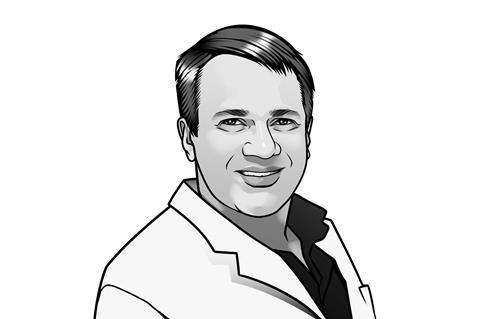
Dr. Alex Rosado has a career in environmental microbiology, with previous positions at the Federal University of Rio de Janeiro (UFRJ), the University of California - Davis, and leadership roles in the Brazilian Society for Microbiology. His academic credentials include a BSc in Biological Sciences, an MSc in Microbiology, and a Ph.D. in Microbiology from UFRJ and Wageningen University & Research (WUR) in the Netherlands. He joined KAUST in late 2020 as Professor of Bioscience and the Principal Investigator of MEGBLab. He studies microbial diversity, evolution, and novel microbial metabolisms using conventional and multi-omics approaches.
MEGBLab’s research spans molecular microbial ecology, microbiome science, biotechnology, and bioremediation. Our extensive research includes work in diverse and extreme environments such as Antarctica, deserts, volcanoes, hydrothermal vents, mangroves, the Amazon rainforest, and coastal ecosystems. Microbial interventions, such as probiotics and microbiome transplants, are emerging as powerful approaches to reverse biodiversity deterioration and increase resilience. Time is of the essence, and we must agree that humanity’s commitments towards a better world must be made now. Our lab mission and vision align with developing biotechnological solutions applicable to space exploration and terrestrial environmental issues, supporting the United Nations’ Sustainable Development Goals (SDGs).
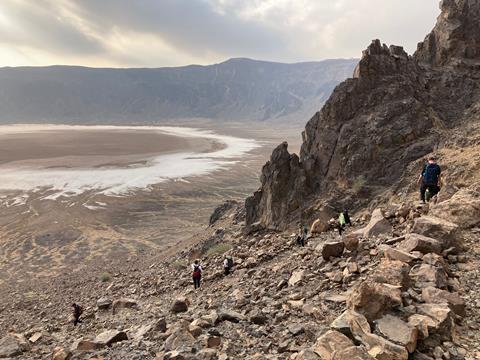
Innovative Projects and Collaborations
Extremophiles: Life Limits, Novel Microbes, and Biotech Applications
Extremophiles thrive under severe conditions, such as extreme temperatures, pH levels, and pressures. Saudi Arabia’s harsh environments, including deserts, hot springs, and volcanic areas, house these resilient organisms. These organisms are fascinating for scientific research and promising for biotechnological applications. Our group isolates and characterizes novel extremophile species, contributing to the global extremophile database and exploring their biotechnological potential.
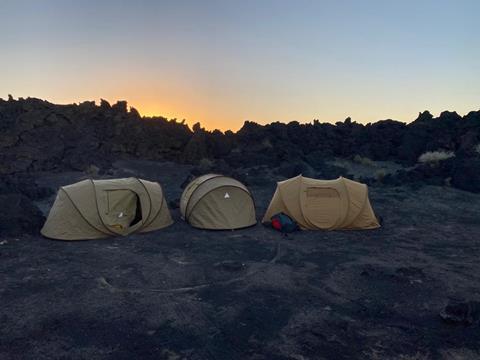
Environmental Microbiology and Bioremediation
We investigate microbial diversity in various ecosystems, including terrestrial and marine habitats like mangroves and hydrothermal vents. As members of the Mangrove Microbiome Initiative (MMI), we aim to protect mangrove forests by understanding the microbiomes that help these trees thrive. We study the effects of beneficial microorganisms on the health and resilience of mangrove ecosystems, including growth promotion, bioremediation of oil spills and microplastics, and beneficial microbiome restructuring. Our team harnesses microbial capabilities for environmental restoration and bioremediation, developing biotechnological applications for Earth and space exploration.
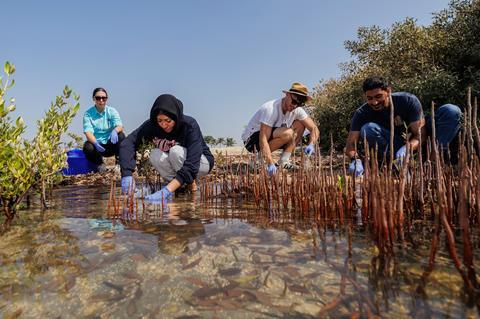
One Health Projects
Collaborating with health institutions in Saudi Arabia and targeting the One Health concept, we study the human microbiome of the Saudi population with non-alcoholic fatty liver disease (NAFLD), aiming to unravel the complex interactions between human health and microbial communities. Additionally, we are developing 3D in vitro tissue constructs (organoids) to study interactions between the human intestinal epithelium and gut microbiome, exploring phage therapy’s potential applications and nanotechnology (Nanowires) in humans and corals.
Microbial Vault Project
This initiative aims to create a repository of beneficial and non-pathogenic microbes, establishing SOPs for various applications. The project envisions expanding facilities and upgrading laboratory safety levels, fostering a seed project expected to grow over time.
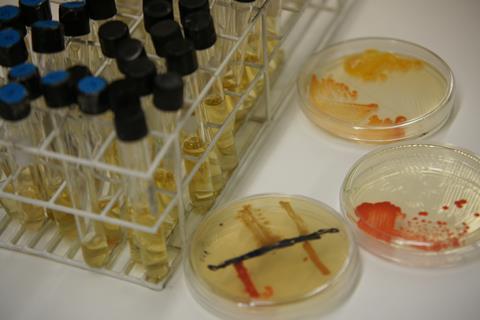
Diversity, Inclusion, and Global Impact
At MEGBLab, we are committed to promoting diversity and inclusion in academic and leadership roles. We actively encourage female candidates to apply for positions within our lab, fostering a diverse and dynamic research environment. We have ongoing collaborations with several countries and projects on the International Space Station microbiome, Dark Earth (Terra Preta), the Amazon region, microplastics’ effects on microbiomes, Red Sea hydrothermal vents, novel phages from extremophiles, sustainable agriculture, and the building of a Mars Simulator chamber at KAUST.
Our global collaborations and impactful research contribute to a deeper understanding of microbial ecosystems and their essential roles in sustaining life on Earth. Through our innovative projects and dedication to scientific excellence, MEGBLab at KAUST is helping to pave the way in microbial ecosystem research, shaping a sustainable future for our planet.
MEGBLab is supported by King Abdullah University of Science and Technology (KAUST). For more information about the lab and ongoing projects, you can visit their website.









No comments yet